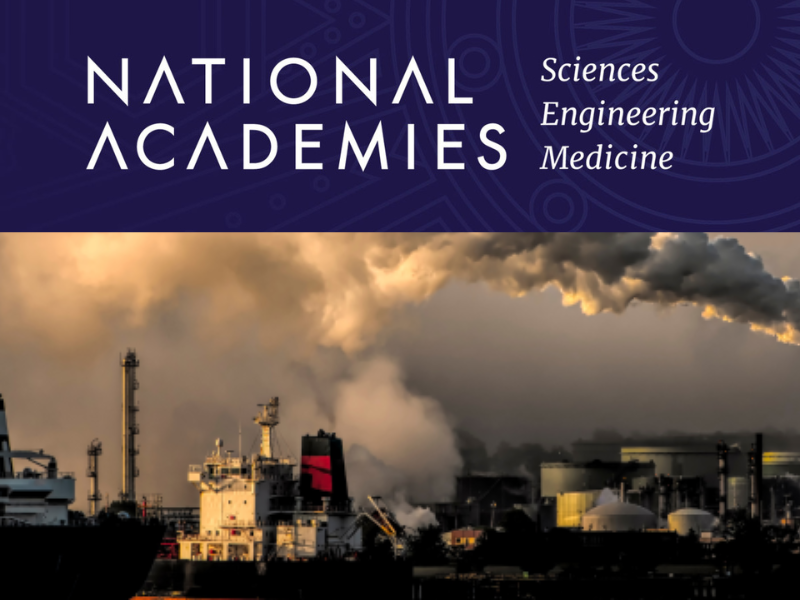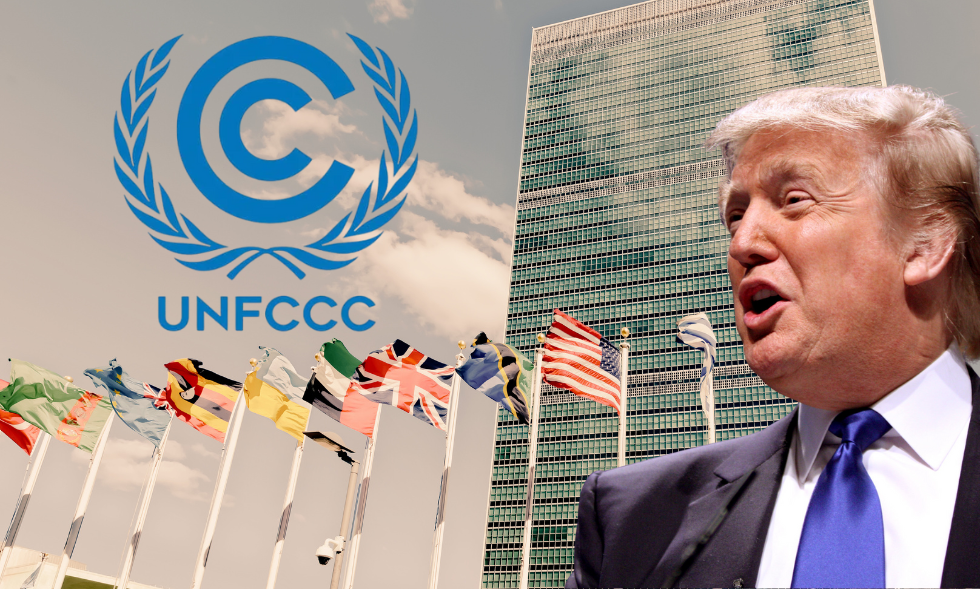September 10, 2025
H. Sterling Burnett, Ph.D.
Director of the Arthur B. Robinson Center on Climate and Environmental Policy
The Heartland Institute.
The National Academy of Sciences (NAS) has proposed a provisional committee to produce a fast-tracked report that will purportedly provide an unbiased assessment of the Environmental Protection Agency’s proposal to repeal the regulation of carbon dioxide (CO2) as a pollutant, which is known as the Endangerment Finding. The language of the proposal and the speed with which it is proposed to be produced, however, does not instill confidence it will in fact be an unbiased assessment. Rather, it would seem the conclusion is already baked in, since the NAS writes “[t]he study will develop conclusions that describe supporting evidence, ….” Rather than the more neutral “the study will examine whether the endangerment finding was justified based on the scientific evidence available at the time of its implementation, and/or whether subsequent data, research, and the best available evidence supports its continued imposition, regardless of whether it was scientifically and legally justified at its inception.”
Also, troubling is the fact that the NAS is attempting to produce a substantive report less than two weeks after it finalized the makeup of its committee. This suggests that the NAS already has a draft of the report written, or being written in the background, with the committee being brought in only to review its findings, perhaps tweak it, and then rubber stamp and taking credit for it. Evidence suggests, producing such a comprehensive, original report, as with the Department of Energy’s recent report or the past U.S. national assessments, takes weeks if not years to write and/or assemble.
The NAS stated its members should “contain the requisite expertise to address its task and whether the points of views of individual members are adequately balanced such that the committee as a whole can address its charge objectively.”
This goal is seemingly undermined by the NAS’s proposed provisional membership, few if any of whom have the requisite background in physics, and research concerning the myriad factors that affect or drive climate shifts. The committee also lacks any semblance of the “balance,” needed to address its charge objectively. Most of the proposed provisional members have demonstrated through their writings and public statements that they are predisposed to linking increasing atmospheric CO2 to purported, potentially catastrophic climate change. This suggests that the committee will be inclined to commit the fallacy of affirming the consequent – the provisional members are on record as believing climate change is dangerous, so they are predisposed to suggesting the reasons for this claim are true.
Below is a brief examination of some of the members of the committee that are problematic. Alternative members are suggested that would provide balance and careful consideration of all the myriad causes and potential consequences of climate change itself, and, in the latter case, of policies put forward to mitigate or reduce the threats of climate.
To begin with, chairing this committee should be someone with a background in physics, not molecular biology. Although while Shirley M. Tilghman may well be qualified to assess the potential phenotypic and genetic impacts, if any, of climate change on biological organisms, she has known specialized knowledge concerning the causes of climate change, either ongoing changes in the present, or climate changes in the past.
Tilghman’s work demonstrates her lack of objectivity. As proof, in a 2015 lecture to the Royal College of Physicians of London, she states:
I needn’t tell this audience that in the last 50 years we have experienced an unprecedented rise in CO2 levels in the environment, leading to a rise in global sea levels of 17 cm, and temperature increases on land and in the oceans.
The impact of these changes in the atmosphere are far-ranging and threaten human health and well-being in many ways, through more extreme fluctuations in weather, decreased air and water quality, declines in agriculture productivity, damage to fragile ecosystems – coral reefs in the oceans and Arctic habitats in the tundra – and ultimately the loss of coastal cities. . . . If I were 18 years old, I would surely want to work on sustaining the future of the planet.
Rather than a microbiologist, no matter what his or her standing within that academic discipline on the topic of climate change, the search for an accurate understanding the science underpinning the endangerment finding, would be better served by an expert in the field of physics or atmospheric physics, or atmospheric chemistry.
We suggest a choice among these scholars, three of whom are National Academy members, chosen by their peers for the honor, each of whom has been published in climate literature.
Richard Lindzen, Ph.D., MIT emeritus and William Happer, Ph.D., Princeton emeritus.
Other scholars with more research experience in the forcing factors that drive, or influence climate include, Willie Wei-Hock Soon, Ph.D. and Anthony Lupo, Ph.D.
Among the remaining proposed committee members, David T. Allen, Ph.D., Susan Anenberg, Ph.D., Michele Barry, M.D., Charles T. Driscoll, Jr., Ph.D., Chris T. Hendrickson, Ph.D., Marika Holland, Ph.D., George M. Hornberger, Rear Admiral David W. Titley, USN (Retired), each is problematic for similar reasons. Each of them is a member of, work with or for, or lead, climate activist organizations or university centers and departments specifically formed after climate alarm became a public policy issue – centers and organizations dedicated to fighting climate anthropogenic climate change. Their work and research are predicated on the assumption that humans are causing dangerous climate change, the effects of which must be detected or teased out both to assign blame and develop responses. If climate change isn’t producing or seriously threatening catastrophic consequences, their respective reputations and much of their lives’ work will be discredited or shown to be undertaken for naught.
In addition, these centers and groups have received millions of dollars in grants, contracts, and donations predicated on the assumption that climate change is not just real, but dangerous, in need of being halted or mitigated, based on solutions or policies developed by their centers or organizations. Further grants and donations would go away if an objective assessment of the state of the knowledge about climate change suggests that it is unlikely to produce dire results, or that the harms it threatens are less severe than any harms that would likely result from the wholesale top-down remaking of the economy, sans hydrocarbon use, necessary to sharply curtail greenhouse gas emissions. As such, they are not positioned to produce a trustworthy objective assessment of the causes and consequences of climate change, being simply invested in the conclusion coming out in a way that vindicates their previous efforts and indicates that continued funding for their work is critical.
Below are additional researchers whose expertise, research, and credentials make them ideal candidates as members of a committee devoted to objectively describe and discuss what is known and unknown about the causes of climate change, and/or the ongoing or reasonably expected future impacts of climate change, and/or the benefits, costs, and potential success of various proposals to “fight” climate change. At the very least, adding one or more of the suggested researchers suggested above and below would provide some of the “balance,” the NAS says it wants its commissioned report to reflect.
David Legates, Ph.D., former Delaware state climatologist and former director of the Center for Climatic Research at the University of Delaware.
Craig Idso, Ph.D., founder, president and current chairman of the board of the Center for the Study of Carbon Dioxide and Global Change.
Joe Bastardi, professional meteorologist and weather forecaster.
Anthony Lupo – department chair and professor of atmospheric science at the University of Missouri.
Roger Pielke Jr., Ph.D. American political scientist and a former professor at the Cooperative Institute for Research in Environmental Sciences.
Cliff Mass, Ph.D., professor of Atmospheric Sciences at the University of Washington.
Mark Albright – Former Washington State Climatologist, Research Meteorologist at the University of Washington
Col. John Antal, Special Assistant to the Chairman of the Joint Chiefs of Staff, member of the U.S. Army Science Advisory Board.
William Briggs, Ph.D. statistical consultant
Petr Chýlek, Ph.D., climatologist and researcher for Space and Remote Sensing Sciences at Los Alamos National Laboratory.
Kevin Dayaratna, Ph.D., director, Center for Data Analysis and Chief Statistician at the Heritage Foundation
James Enstrom, Ph.D., president of the Scientific Integrity Institute and former research professor at the University of California, Los Angeles, School of Public Health and Jonsson Comprehensive Cancer Center.
Indur Goklany, Ph.D., visiting Fellow, American Enterprise Institute, retired from the U.S. Department of the Interior.
Howard Hayden, Ph.D., professor of Physics Emeritus, University of Connecticut.
Andrew Morris, Ph.D., J.D., D. Paul Jones, Jr. & Charlene Angelich Jones Chairholder of Law, University of Alabama.
Arthur Viterito, Ph.D., retired professor of geography at the College of Southern Maryland/
Benjamin Zycher, Ph.D., Senior Fellow, The American Enterprise Institute.




